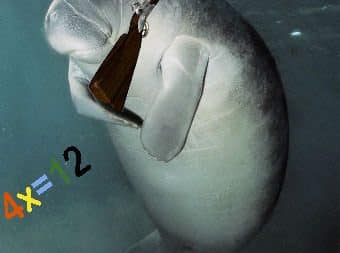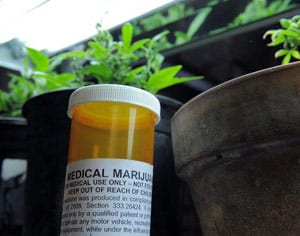(Two powerful CEOs walk out on stage. The audience applauds. The men shake hands and sit facing each other)

Theodore P. Friedman: Good evening, Jonathon.
Jonathon H. Flanagan: Hello Teddy. It has been a long time.
Theodore P. Friedman: Indeed. Are you ready to get started?
Jonathon H. Flanagan: Yes. Let's proceed.
Theodore P. Friedman: Now you have been Chief Executive Officer at Sisco Bionics for seven years. Before that, you were Co-Head of corporate strategy at Total Dominion Holdings and Trust and served a succession of executive positions at several lucrative co-
Jonathon H. Flanagan: Please, Teddy. You are embarrassing me.
(The audience laughs)
Theodore P. Friedman: Apologies, Jonathon, but some of our audience members may not be acquainted with your powerful stature.
Jonathon H. Flanagan: Understood, but you are are no slouch yourself! Your role at Glaxesco has turned the company into a major player in the global economy. In fact, you coined the term "gloconomy" in 1973.
Theodore P. Friedman: 1972.
Jonathon H Flanagan: Sorry. 1972. This was right after publishing your groundbreaking report "The Socio-Economic Repercussions of High Yield Bonds, the Export of Maldivian Harmony Bracelets and the Impact of Sweden's Liberal People's Party on the Australian Dollar." It was a real page turner.
Theodore P. Friedman: Thank you, Jonathon. However, we should stop naming our personal successes or we'll be here all night!
(The CEOs share a laugh. The audience laughs, too)
Theodore P. Friedman: No. Actually, we are here to talk about excellence, specifically our ideas about excellence. So my question to you, Jonathon, is how does one achieve excellence?
Jonathon H. Flanagan: You know, in the fall of 1994 I met Argorcorp CEO Arthur Templeton at a conference in Zurich, and he gave me some advice that changed my life.
Theodore P. Friedman: Which was?
Jonathon H. Flanagan: He said to me, "You gotta be willing to make the tough situations, Jonathon."
Theodore P. Friedman: Give me an example.
Jonathon H. Flanagan: OK. This happened to me in the summer of '07. I got word one of my R&D labs in suburban Atlanta created a cyborg with advanced AI for a secret military project. Now, this cyborg malfunctioned during a weapons test and became self aware. It murdered half a dozen top military brass and seventeen of my own scientists before breaking free of our compound and assimilating into the general public. We don't have a clue where it is.
Theodore P. Friedman: Sounds like a public relations nightmare.
Jonathon H. Flanagan: You bet it was.
Theodore P. Friedman: So how did you handle the situation?
Jonathon H. Flanagan: I bought off the local media and planted a false story—said the explosions were part of a security drill—and we also paid off the families to keep them from talking. Later, our accountants wrote the whole damn thing off as a business expense.
Theodore P. Friedman: There you have it, folks. Excellence.
(The audience applauds)
Jonathon H. Flanagan: Thank you. Now Teddy, discuss your leadership style.
Theodore P. Friedman: I like to put out the image of the everyday Joe, a guy you can have a beer with and watch the game. But don't let that fool you. I have a cold, empty heart. Just last month, I shut down our Toledo, OH plant—the one where we produced the Oxycontin knockoffs—because it'd be cheaper to move operations to Nicaragua.
Jonathon H. Flanagan: We have a facility down there, too.
Theodore P. Friedman: Beautiful country, Nicaragua. Hard workers, too.
Jonathon H. Flanagan: I imagine those in Toledo weren't thrilled with the decision?
Theodore P. Friedman: Listen, Toledo is suffering from a major drug addiction epidemic. Of course some will say we produced the drugs they were addicted to, but I think that's missing the point. We wanted to stay in the city, but our employees were costing us thousands from addiction-related theft, accidents and general inefficiency.
Jonathon H. Flanagan: How did you break it to them? Your employees?
Theodore P. Friedman: I pulled the fire alarm and had the building evacuated. While everyone was waiting in the parking lot, I had all the factory doors locked and escaped by helicopter. It took them a few days before they found out they were fired.
Jonathon H. Flanagan: That's pretty cutthroat.
Theodore P. Friedman: Speaking of cutthroat. If you want to run a multi-billion dollar company, you gotta be willing to cut a person's throat and watch them bleed to death.
(The CEOs laugh)
Jonathon H. Flanagan: When was your last one?
Theodore P. Friedman: Thursday.
Jonathon H. Flanagan: I slit one on Wednesday.
(The audience claps politely)
Theodore P. Friedman: Nice. So Jonathon, tell me: How do you balance vigilance with your need for growth?
Jonathon H. Flanagan: The best CEOs I know show no fear, and I am no different. Sisco Bionics is expected—BY LAW—to earn profit, so there's not much room for vigilance when I have to be in the black by the end of the fiscal year.
Theodore P. Friedman: I don't think many people in our audience appreciate the pressure we handle on a daily basis.
Jonathon H. Flanagan: At this level of business, cancer is the norm.
Theodore P. Friedman: That's right. If your body isn't riddled with cancers then you aren't working hard enough. Luckily Glaxesco has the cure for cancer, so I just take a shot once of month to prevent death.
Jonathon H. Flanagan: I really appreciate you giving me a year's supply each Christmas, Teddy.
Theodore P. Friedman: Anyone who makes a billion dollars a year receives the cure.
Jonathon H. Flanagan: Just another incentive to join the billionaire's club.
(The CEOs laugh and clink whiskey glasses)
Jonathon H. Flanagan: Seriously, though. It's a great club.
Theodore P. Friedman: You get your own escape pod just in case the Earth faces a catastrophic event.
Jonathon H. Flanagan: OK, I want to reel things back in. We're getting off topic. Let's go back to 2008. The economy was unraveling and the stock market was plunging. Where were you?
Theodore P. Friedman: I was hunting Mediterranean monk seal on my private island off the coast of Greece.
Jonathon H. Flanagan: Isn't the Mediterranean monk seal endangered?
Theodore P. Friedman: I only hunt endangered animals. Anyways, I get word about the 2008 crash from my my lawyer Benjamin Bornstein. He was in hysterics. He lost everything and told me he had tied up his family and was planning one of those murder suicides.
Jonathon H. Flanagan: Did he go through with it?
Theodore P. Friedman: I don't know. My VP of operations was on the other line, so I clicked over.
Jonathon H. Flanagan: Excellence.
(The audience claps)
Theodore P. Friedman: The way I see it: If you're going to survive at this level of the game, you cannot let your personal life interfere with your business.
Jonathon H. Flanagan: I couldn't agree with you more.
(Jonathon looks at his Rolex)
Jonathon H. Flanagan: OK. We don't have much time, but I have one quick question before we go. What was the best business decision you ever made?
Theodore P. Friedman: As a young businessman, I demolished an inner city community center to make room for luxurious high-rise condominiums. I made millions on the deal, and it opened the doors for me to get to where I am today. What about you?
Jonathon H. Flanagan: My son was kidnapped in 1998, but I refused to pay his ransom because I needed the capital to push through a merger with our biggest competitor.
Theodore P. Friedman: Did you get your son back?
Jonathon H. Flanagan: No, but I eventually remarried and had twins.
(The audience applauds)
Theodore P. Friedman: Well that's going to end today's talk, and I'd like to thank Jonathon H. Flanagan for sharing his ideas about excellence with us today.
Jonathon H. Flanagan: You're welcome. And thank you, Teddy. It's been a pleasure.
Theodore P. Friedman: The pleasure's all mine. Goodnight everyone.
(The audience claps while the two men have a muted chat. A chained slave brings them more whiskey. Fade out)


